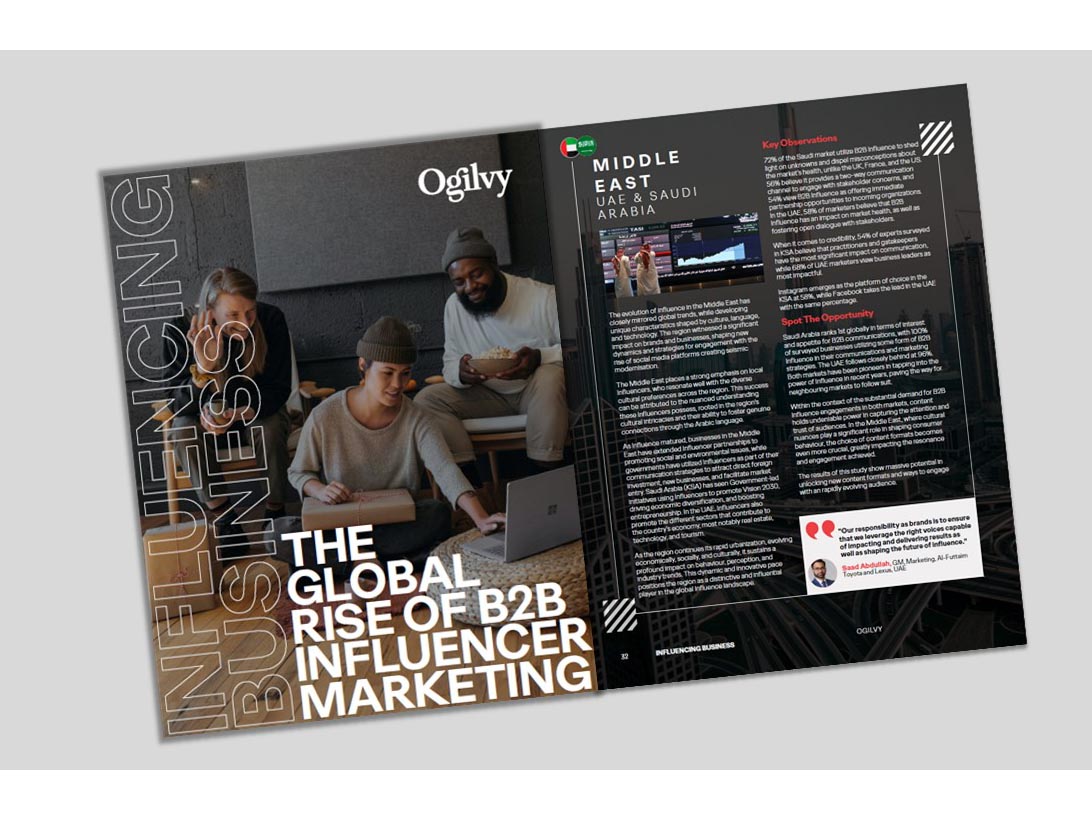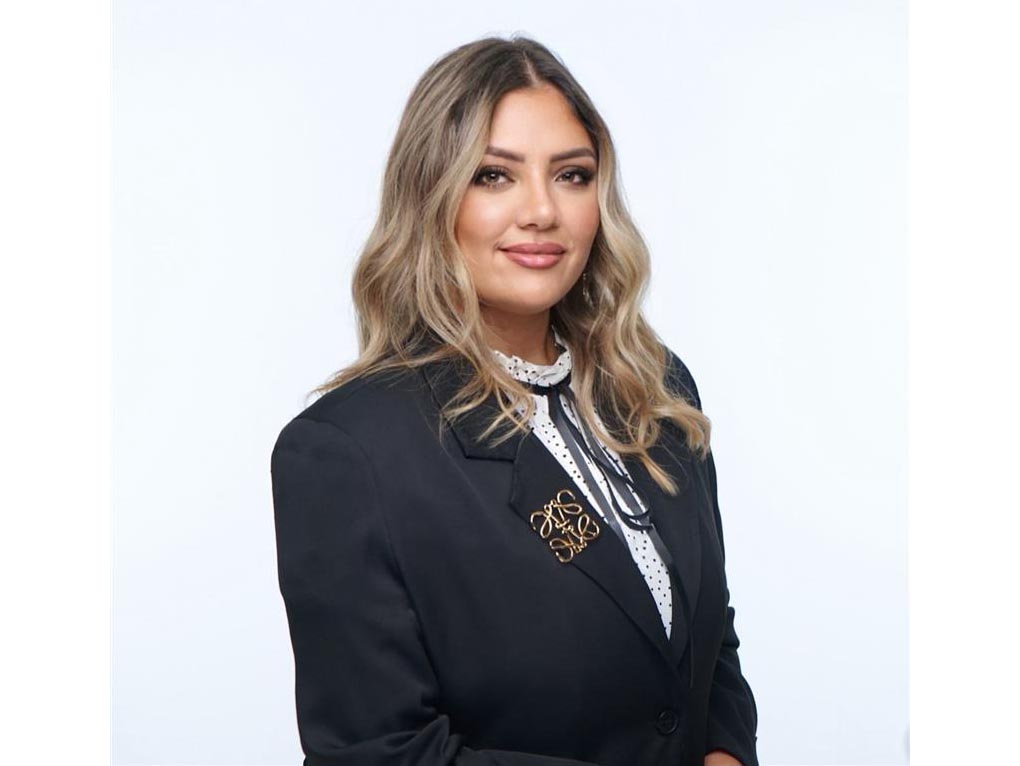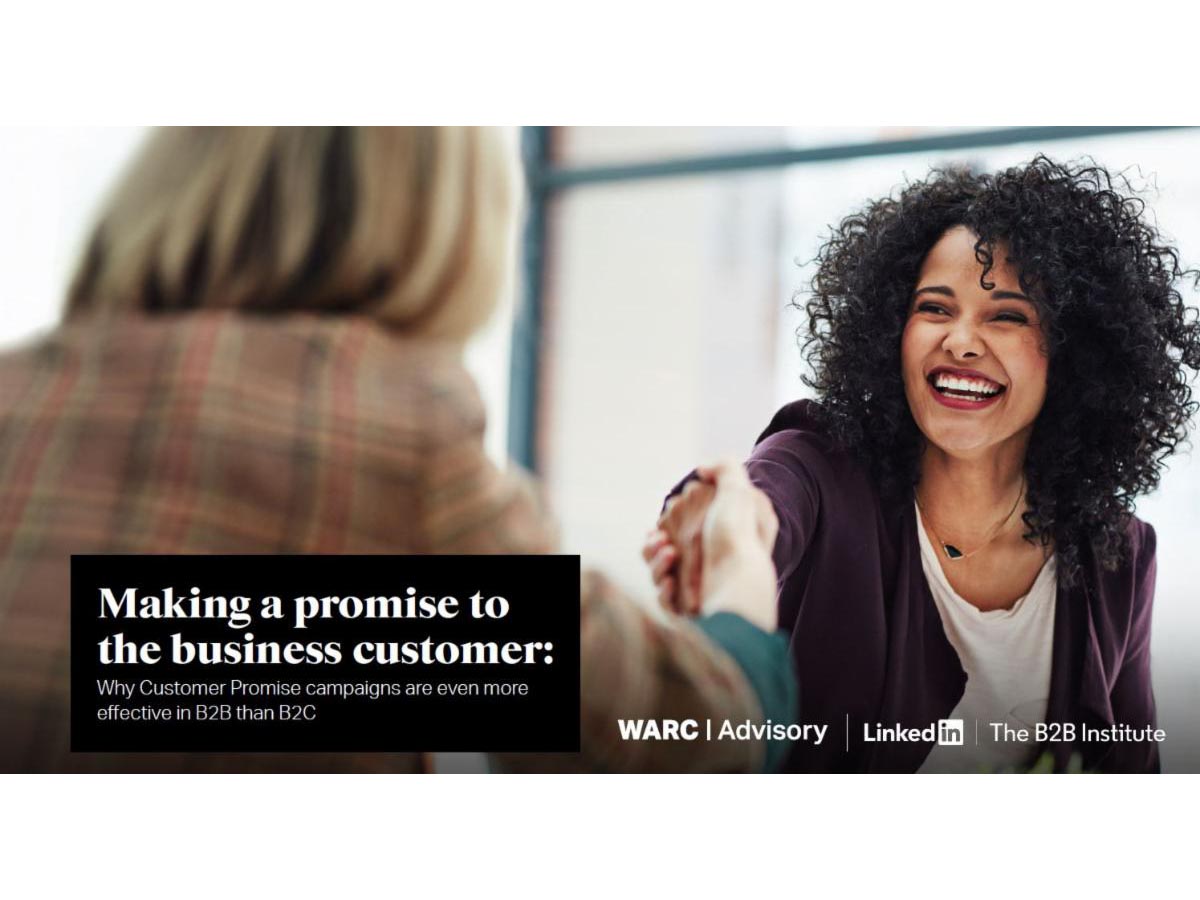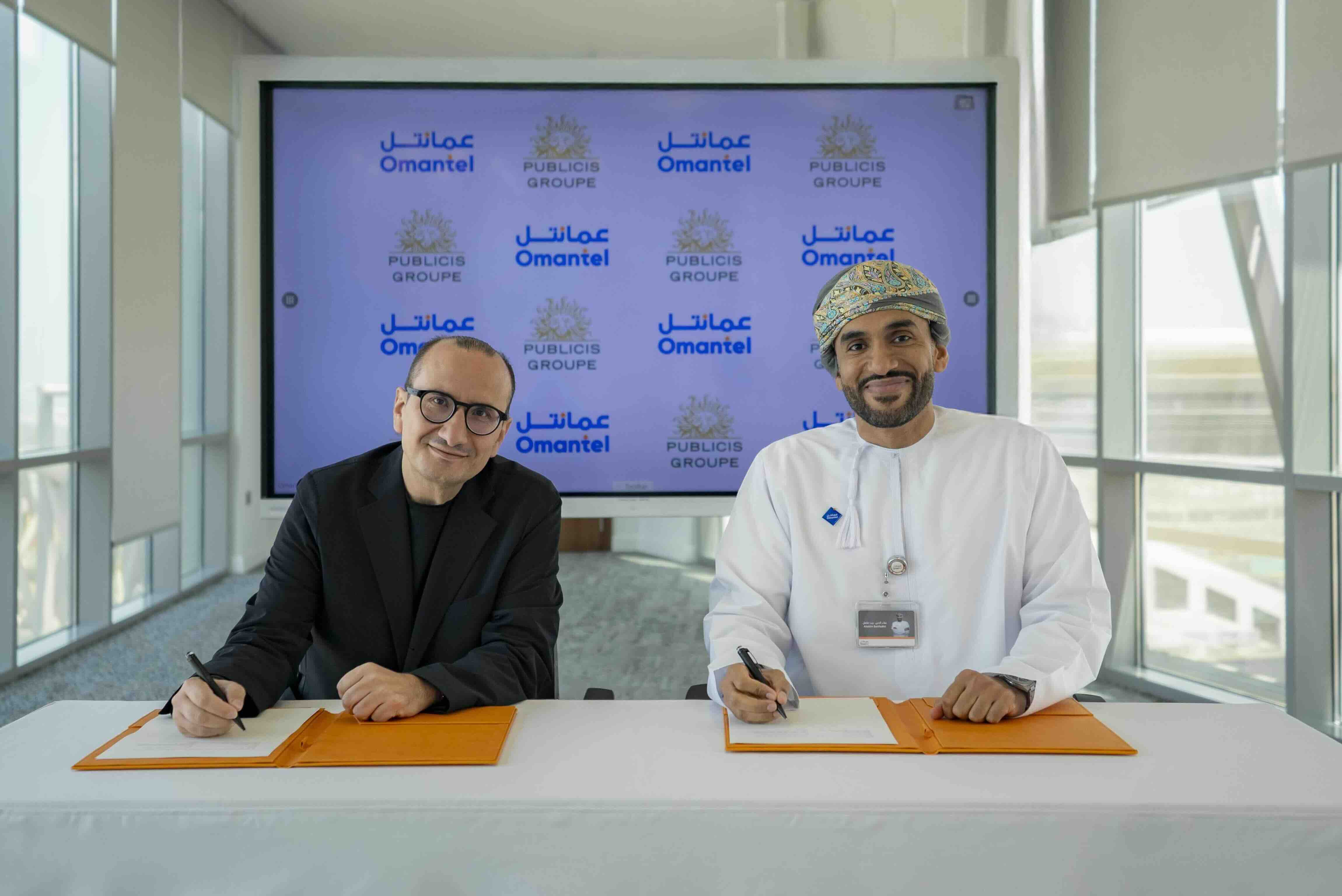News - Digital/Tech
Untapped potential of B2B Influencer Marketing in MENA, says Ogilvy study
February 20, 2024
.jpg) Advertisement
AdvertisementThis is a top finding of the first-of-its-kind study on B2B Influencer Marketing by Ogilvy, which covered 550 senior decision-makers across 11 global markets, including Saudi Arabia and the United Arab Emirates, representing diverse business sectors including retail, FMCG, legal, construction, technology and others.
What is B2B Influencer Marketing?
Unlike B2C influencer marketing, B2B Influencers comprise subject matter experts, influential individuals and key industry leaders, who create content that has a positive impact on the brand perception and purchase decisions of customers. Significantly, they also contribute to fostering an informed understanding of the business landscape, dispel misconceptions about the market, and help drive investor interest and boost market sentiment – all benefiting businesses in the long run.
Saudi Arabia and UAE lead the way
The Ogilvy study finds that Saudi Arabia ranks first globally in terms of interest and appetite for B2B Influencer marketing, with 100% of surveyed businesses utilizing some form of B2B Influence in their communications and marketing strategies. The UAE follows closely behind at 96% while the global average in B2B Influencer adoption is 75%. The two high-growth markets are also pioneers in tapping into the power of Influence, paving the way for neighbouring markets to follow suit.
There is increased appetite for B2B influencer marketing with 93% of all respondents saying they plan to increase use. More than a third (67%) said B2B influencer campaigns have more impact on their marketing performance than brand-only marketing. Pertinently, 90 per cent said B2B influencers are an important source of staying up to date with their industry with more than half (57%) citing them as their main source of information.
Building authentic share of voice
Ashraf Shakah, MENA PR President, Memac Ogilvy, said: “With 75 per cent of the workforce to be digital natives by 2025, it is important for businesses to understand and navigate emerging marketing trends, with B2B Influencer Marketing emerging as one of the most important and yet most untapped opportunity in the MENA region. Our study offers unique insight on how businesses can deploy a robust B2B influence strategy with three key elements at its core – choosing talent wisely, building long-term relationships, and promoting two-way engagement – to build an authentic share of voice.
“As the region continues to evolve across all fronts with GCC economies witnessing an unprecedented era of economic diversification and fast-paced growth, the influencer strategy of businesses will undoubtedly help transform their narratives, and set new benchmarks for authenticity, engagement, and impact. This is only the start of the B2B influencer journey globally, and the MENA region is poised to inspire and lead, carving a unique path in the global realm of influence.”
Fostering two-way communication
In other findings, 72% of Saudi businesses said they utilise B2B influence to dispel misconceptions about market health, while 50% believes it fosters two-way communication channels for addressing stakeholder concerns. Moreover, 54% of the Saudi market experts surveyed sees B2B influence as an ideal pathway to build partnership opportunities. The same sentiment holds true among UAE respondents too.
This is particularly relevant to the MENA region, where the influencer ecosystem thrives on lasting connections, with influencers evolving into trusted advisors who contribute to strategic decisions and marketing initiatives.
Commenting on the findings, Saad Abdullah, GM, Marketing, Al-Futtaim Toyota and Lexus, UAE, said: "Our responsibility as brands is to ensure that we leverage the right voices capable of impacting and delivering results as well as shaping the future of influence."
Navigating cultural sensitivities
The MENA’s rich cultural fabric brings both opportunities and challenges. Brands must navigate cultural sensitivities, language complexities, and differing customs to ensure their messaging resonates authentically. Successful influencers demonstrate a keen ability to blend their personal brand with cultural expectations, fostering deeper connections with their audiences. The study also underlines that brands aiming to penetrate specific sectors recognize the power of collaborating with influencers who have a deep understanding of those sectors.
Catalysts for socio-economic transformation
B2B influencers in the Middle East are also assuming roles as catalysts for change. They leverage their platforms to highlight pressing issues, driving meaningful conversations, and inspiring action. The utilisation of influencers by governments to support initiatives such as Saudi Vision 2030 demonstrates the potential of influencer partnerships to drive not only business objectives but also accelerate societal transformation.



.jpg)










